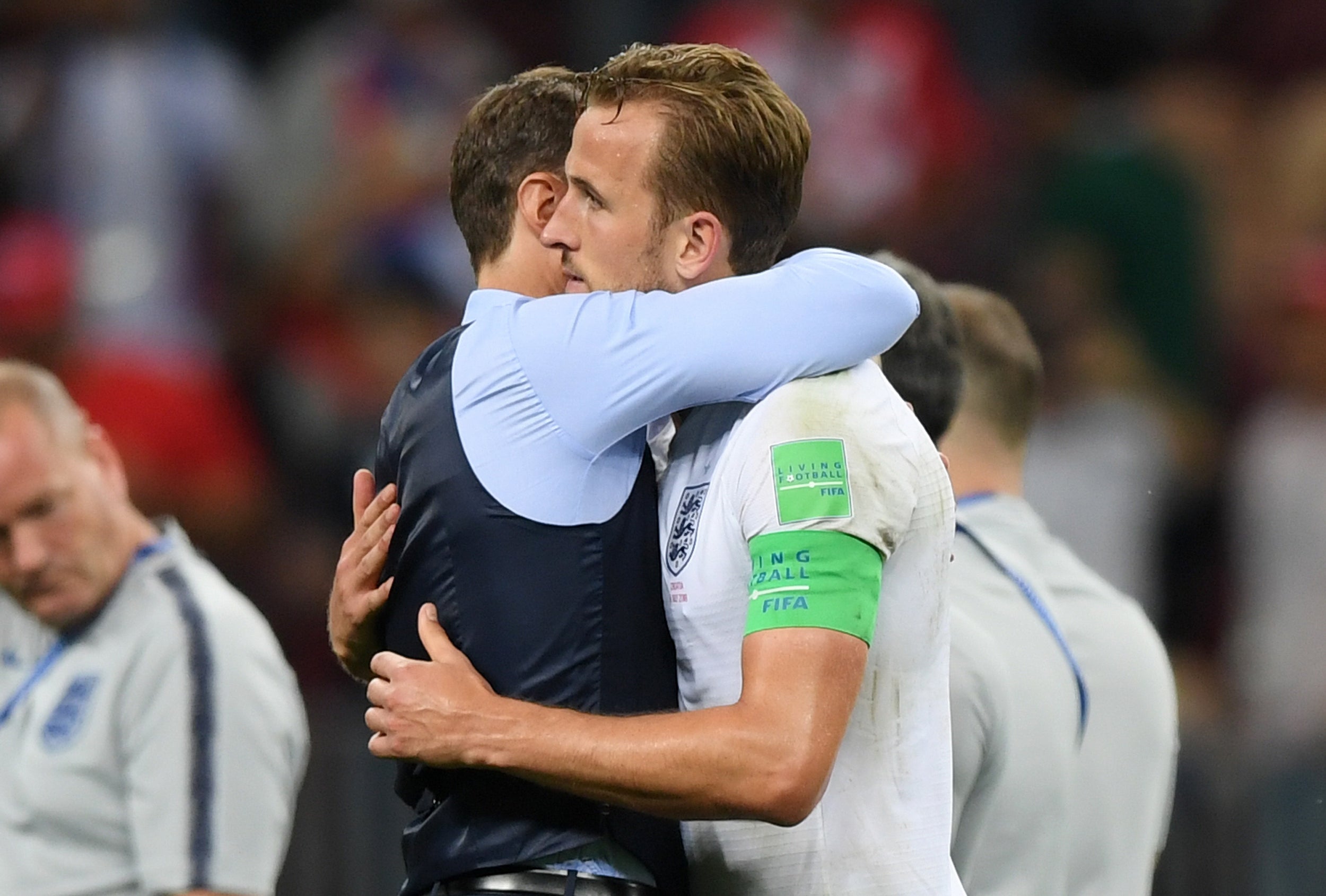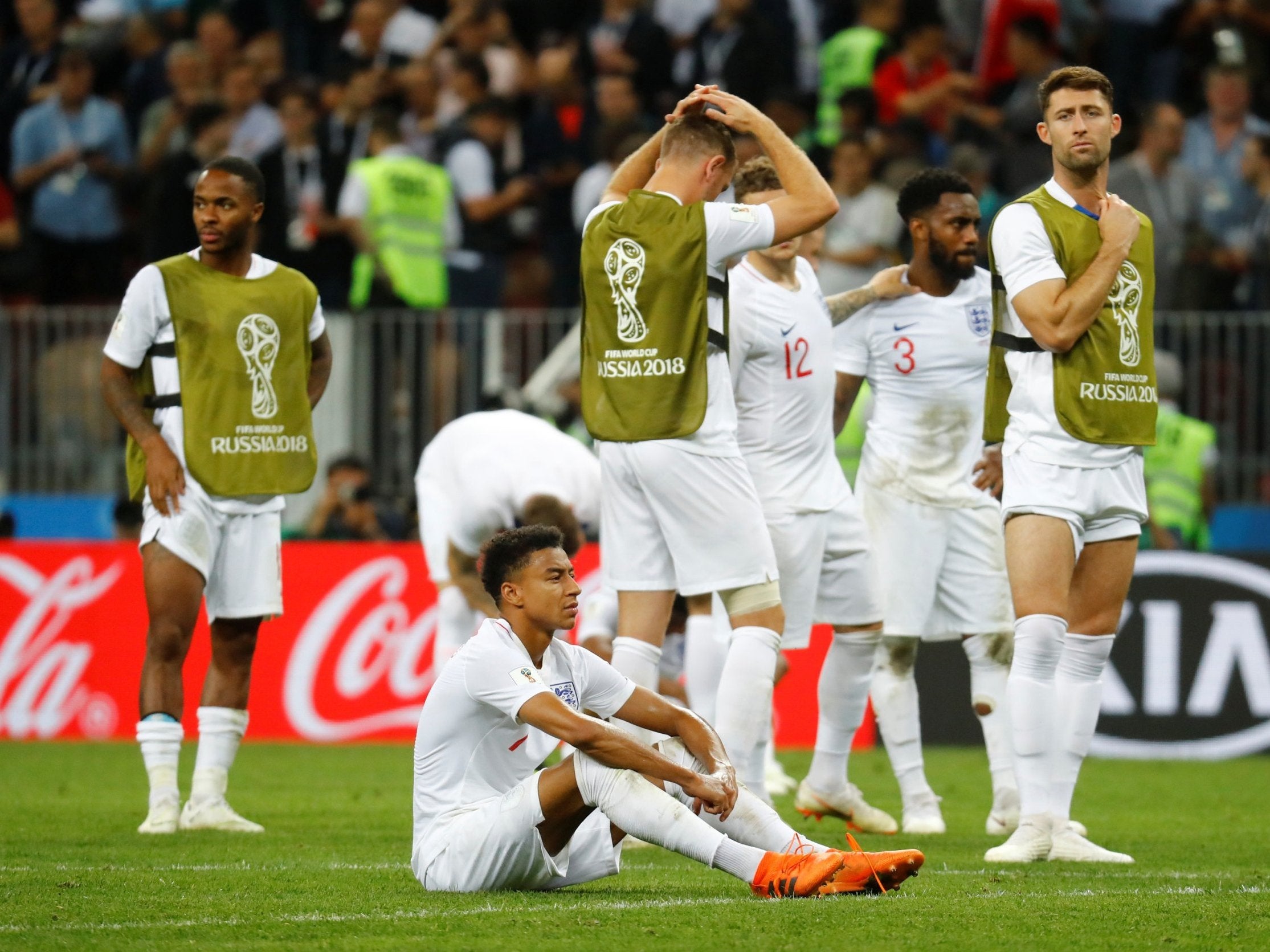In the end, it wasn’t England’s redemption story, but Croatia’s.
They had that bit more, that bit more nous, that bit more energy, that bit more quality - and now that one more grandiose game, as they make their first ever final.
That is really the story of this game, too. There will be a lot of questions and discussion over the different levels of personality and persistence of the sides, over whether England should have pressed home when in the lead and Croatia were apparently on the edge, over John Stones’ struggle with that final fateful ball for Mario Mandzukic’s winner. And while they are fair discussions they would not be fair conclusions. They will be hindsight’s more laboured look at a semi-final that in real time pushed both teams to their hugely admirable limits. That’s how moments like the winning goal happen, that’s how legends are made.
That is the pity for England, the glory for Croatia.
This is the real glory of the World Cup beyond the immortality winning that unique trophy represents; why it is so intensely involving.
The natural ebbs and flows of any football match cease to be ebbs and flows in such a knock-out but instead become serious tests of the mettle of every player involved. You don’t get another chance to deal with it, or learn from what went wrong, at least in this specific special moment in time. It’s adapt or die.
It’s why players aren’t so much making blocks, but looking to force their body towards the ball with every element of their being. It’s not that the game is ebbing and flowing, it was that the different stretches in play were stretching them to the limit.
This match went through three distinct phases.
The first stage - which was really the first hour - saw everything go right for England, Southgate’s entire gameplan pay off, and that was what made the second stage all the more testing and the final score all the more frustrating. Everything fell for England - even when it fell into the problem area of midfield.
It wasn’t just that England’s opening goal of course came from a set-piece, but that first set-piece came from a break in midfield - and from punishing the one type of player Southgate doesn’t have. After Croatia had spent the first five minutes casually playing the ball about, Dele Alli honed in on Luka Modric, won the ball and surged forward. Modric was confronted with a new problem that he didn’t seem to know how to deal with, other than to take the England playmaker down. Up stepped Trippier, and in went the ball.
It wasn’t England’s typical set-piece, and it wasn’t a typical strike giving its stunning quality, but it was all part of the same framework; the same system. It also further played into England’s feet, because it meant they had less need for possession. Croatia actually had to turn that “control” into something constructive.
Except there were long periods when they couldn’t even construct a simple passing passage. The game hadn’t even got to the half-hour and Modric and Sime Vrsaljko had already messed up the same move three times, the playmaker badly overhitting a pass. When Vrsaljko then attempted to cut a ball back from the edge of the box, it only ended up with the wing-back berating his teammates because they’d ran too far ahead.

The situation seemed to be getting to a jaded Croatia and, when they did finally get in behind, there was a full-on and fully focused English block or challenge. Harry Maguire frustrated Rebic with one challenge, Young then did the same to the same player with an interception.
This is the other part of Southgate’s system, and the specific point of the three-man backline in covering midfield inferiority. But there was none of that assertion at the other end, because there was no confidence.
Croatia actually looked nervous any time England got forward but that was why England suddenly had to look at themselves when the game turned and the entire tone changed.
There were so many moments when Southgate’s side - and particularly Harry Kane and Raheem Sterling - looked to have Dejan Lovren and the rest of that defence on the rack, only for something to hold them back.
Whether it was complacency, profligacy or just coincidence was hard to know, but it meant that with just one goal when they could have had more England were always open to one moment upending everything. So it came.
After an opening to the second half when Croatia looked out of ideas and so many crosses were either overhit or just easily mopped up, Vrsaljko then hit the sweet spot. They’d finally got it right, and Perisic was right in there to finish with brilliant improvisation.

Walker meanwhile showed the flipside of that three-man defence, as he dealt with the delivery like a wing-back rather than a centre-half: poorly.
It was now the same with England’s gameplan. The three-man backline formation was no longer assuredly shuttling the ponderous Croatian midfield, but now increasingly ceding to a siege. There was a long period then when it seemed Perisic would win the game on his own, and he almost did when he hit the post. Except, they couldn’t quite hit the right note either - or the right spot.
The semi-final then entered its final stage, when players aren’t so much pushed to the limits but go beyond. It could be seen in how Modric messed up the easiest of touches shortly before playing one of the passes of the World Cup, or how languid Kane looked.
The easy analogy at this point is two defiant fighters exchanging big blows in the final exhausting stages of a fight, but they did exchange big chances. Stones had his header cleared off the line by Vrsaljko, Jordan Pickford made yet another of those wonder saves to deny Mandzukic from almost point-blank range.
That wasn’t to be the striker’s last chance, as he again proved himself the ultimate big-game player. As Kane struggled at the other end, Mandzukic kept striving, and ultimately got his reward.
Croatia get their reward, their redemption. But it does not mean England should not get credit.
Everyone by now knows the score, but England at least fell in a way that hasn’t been seen before.







